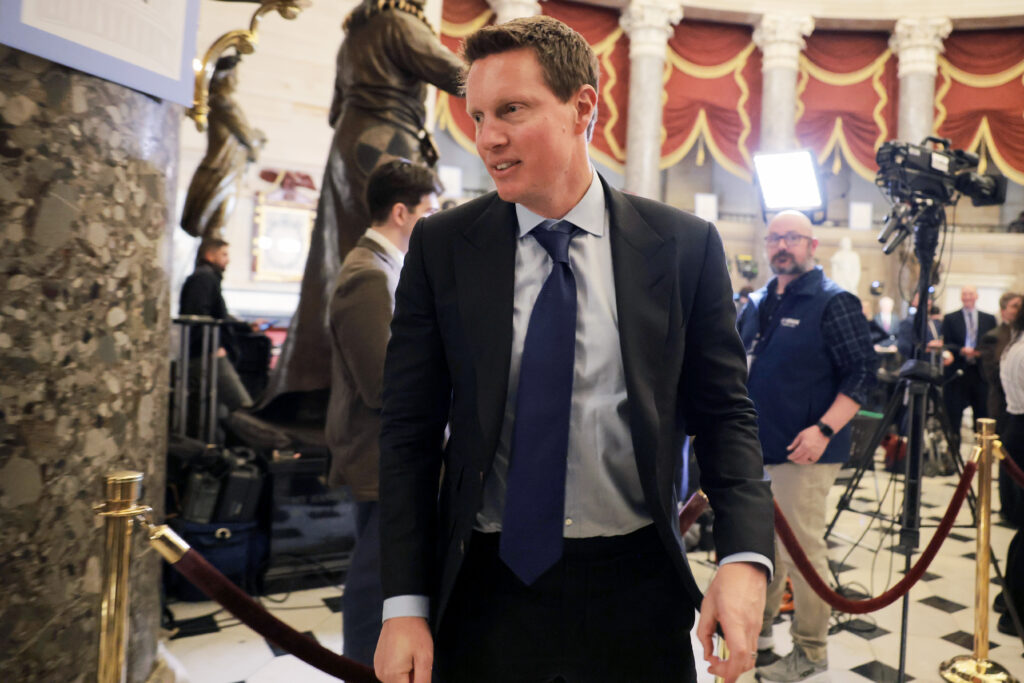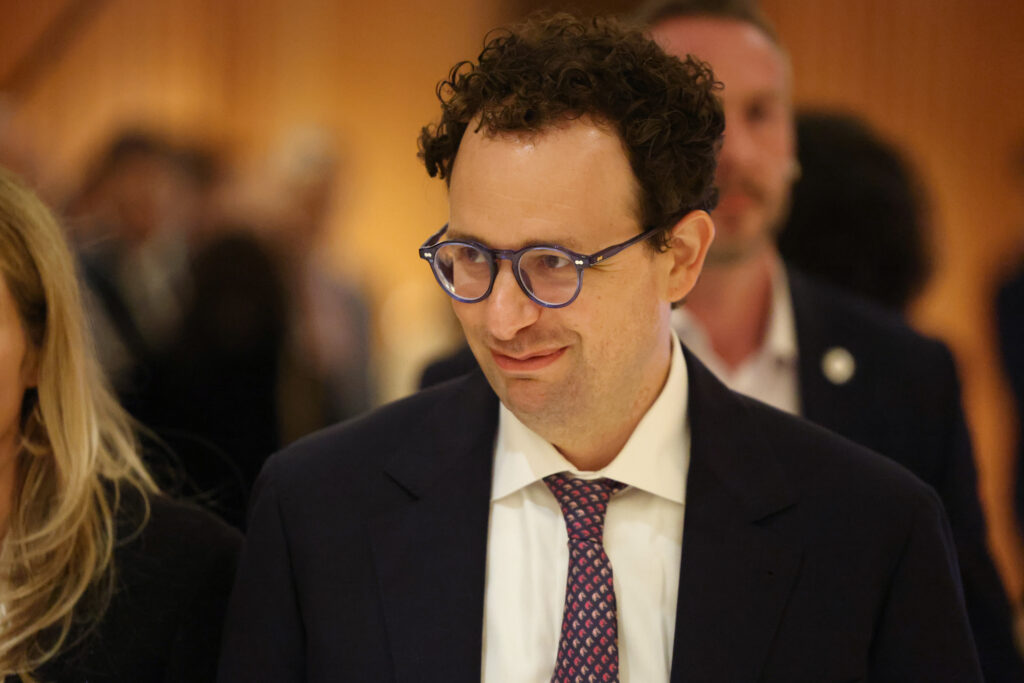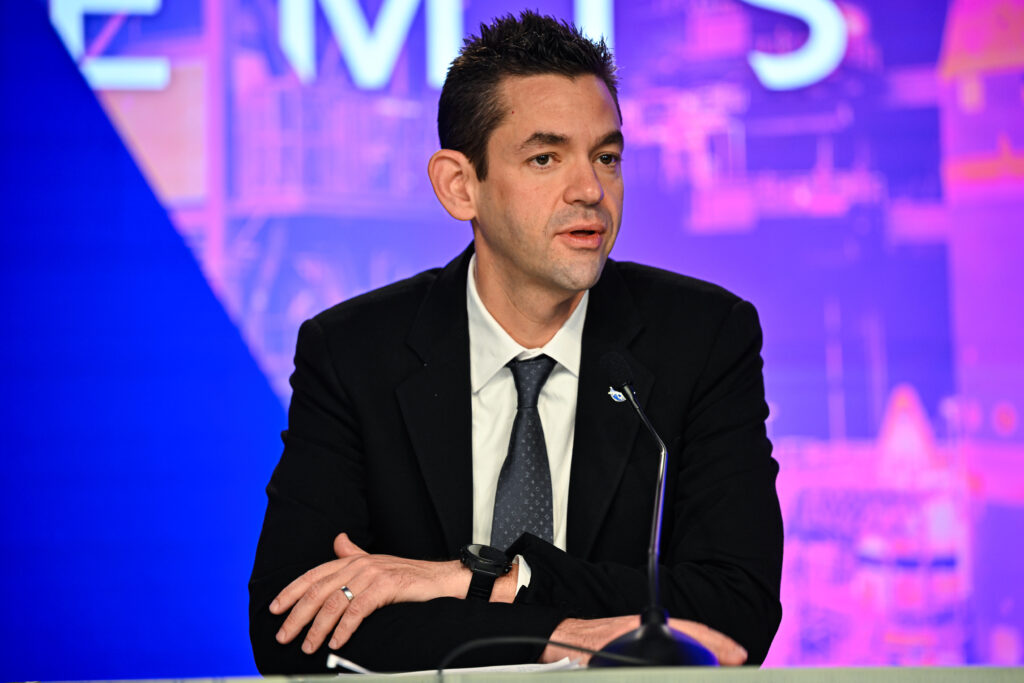Trump says frustrated with Iran, but mediator sees ‘breakthrough’
President Donald Trump on Friday voiced frustration with Iran’s stance in nuclear negotiations as US staff left Israel due to safety concerns — but mediator Oman promoted what it said was a “breakthrough” to avert war.Trump has ordered the biggest military build-up in decades in the Middle East, with the world’s largest aircraft carrier, the USS Gerald R. Ford, approaching the coast of Israel, as he demands Iran agree to sweeping concessions on concerns starting with its nuclear program.A day after the United States and Iran held talks in Geneva, Trump said that the cleric-run state was “not willing to give us what we have to have.” “We’re not exactly happy with the way they negotiated. They cannot have nuclear weapons, and we’re not thrilled with the way they’re negotiating,” Trump told reporters.He later said he wants Iran to have “no enrichment” at all of uranium that could go toward a nuclear bomb, which Iran denies it is pursuing.But Oman, which mediated the Geneva talks, offered a much rosier picture and said that Iran had agreed to zero stockpiling of any uranium, making moot the question of the level of enrichment.Iran also agreed to degrade current stockpiles into fuel, said Oman’s foreign minister, Badr Albusaidi, who was in Washington meeting US Vice President JD Vance.”If the ultimate objective is to ensure forever that Iran cannot have a nuclear bomb, I think we have cracked that problem through these negotiations by agreeing a very important breakthrough that has never been achieved any time before,” Albusaidi told CBS News program “Face the Nation.””If we can capture that and build on it, I think a deal is within our reach,” he said, estimating that three months would be needed to finalize an accord.The renewed US pressure comes weeks after Iranian authorities killed thousands of people as they crushed mass protests.As Washington mobilizes forces, Trump said “nobody knows” if a US attack would bring down the Iranian government.Iran agreed to restrictions to low-level enrichment in a 2015 deal that Trump ripped up during his first term in office.Trump in June had said that Iran’s key nuclear sites had been “obliterated” after the United States joined a major Israeli bombing campaign on the country.- Rubio heads to Israel -Meanwhile, US Secretary of State Marco Rubio will travel to Israel for talks on Iran on Monday, the State Department said. In a rare break from decades of precedent, the top US diplomat will travel without reporters on his plane.Rubio’s trip comes as the US embassy announced it was allowing non-emergency government personnel and family members to leave Israel “due to safety risks.”Germany in a new advisory said it “urgently” discouraged travel to Israel.Britain and Canada said they were moving some diplomatic staff out of Tel Aviv, Israel’s economic hub where most countries maintain embassies, as a precaution.China and Canada both called on their citizens to evacuate Iran, while Britain pulled its embassy staff in Tehran.- Issues beyond nuclear -Trump in his State of the Union address Tuesday alleged Iran was developing missiles that could strike the United States.Rubio later said it would be a “very big problem” for Iran if it does not discuss its missiles. Iran has insisted that the ongoing talks focus on the nuclear issue.Increasing pressure, Rubio on Friday designated Iran a state sponsor of wrongful detentions, a new blacklist, over jailings of US citizens.Iranian Foreign Minister Abbas Araghchi said Friday that “success in this path requires seriousness and realism from the other side and avoidance of any miscalculation and excessive demands.”The UN nuclear watchdog, the International Atomic Energy Agency, confirmed that it would hold technical discussions with Iran on Monday.The agency called on Iran to cooperate with it “constructively,” according to a confidential report seen by AFP. In their capital Tehran, ordinary Iranians expressed distrust of the United States and hoped negotiations would lead to economic relief for their sanctions-hit nation. “Whatever the outcome of the negotiations…it should lead to some improvement in people’s economic situation. Not just a little — it is our right,” Ali Bagheri, 34, told AFP. Hamid Beiranvand, 42, said Iran should “not give any concessions” as Washington “breaks promises” — but that “everyone prefers that a war doesn’t happen.” burs-sct/nro/sla







